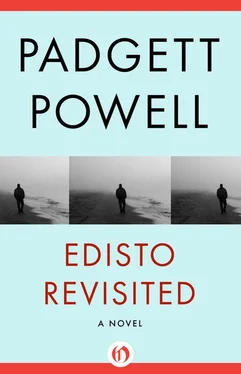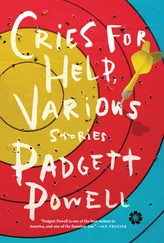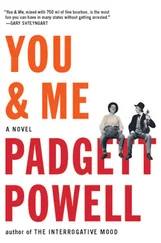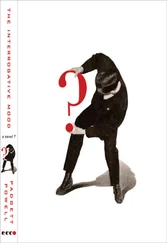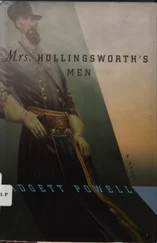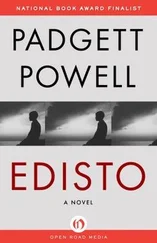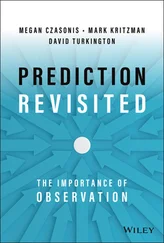“What?”
“Nurses.”
“Nurses?”
“Yes.” He went into a small room and left me with this prospect. Did he mean nurses in a figurative sense, in which case they could be outright whores as long as they cured you, and in which case he was joking as well as my father and his clan might joke, or did he mean it literally? You could only hope he meant nurses. I was in the epicenter of a time and place where no questions should be asked, or thought I was, not unreminiscent of the times I’d had with this man before, when things were so obscure and adult around me and him that I chose to be a kind of passive radio receiver of the signals of enigma swirling around. He came back through to the yellow-blaring refrigerator, and I toyed with the radio philosophy a bit: “What for?”
“What what for?”
“The nurses.”
“Health.”
There you go. Answers to questions in these radio-silence zones of human endeavor constitute diminishing returns. Do not ask. Prepare for nurses. How to prepare for nurses? Get a beer. Get sick. Lie down. Look feeble.
I did all this, feeling fine on a kind of bamboo sofa overlooking the bayou, or whatever we’d come in on, the town’s twenty or so pirogues sticking out into it like teeth from a comb, I with no idea if this town was for fishing or receiving nurses or pursuing nutria or what. But this was “out there,” and it felt good, not unlike I used to feel as a child in our house on the Atlantic, which by now was altogether suburban. There were some flies on their backs on the windowsill, quaintly dead. A pirogue motored along and paused, and a man took the nutria off the bow of ours and put it on the bow of his and motored on with the same want of circumspection Taurus had used taking the beer in the bar. It was dark, but the man appeared to be made of rust.
“Small problem,” Taurus called from the room he’d gone into again. “Yours is large. But young.”
“Young?”
“Under thirty.”
“Large?”
“Under three hundred.”
Oh, Patricia. I had had Patricia Hod, who might have been crazy but who was a marvelous woman otherwise, and now I had … what? I had trouble, I had waste, I had misery a-comin’ and I did not look forward to it. I lay there like Cleopatra on my divan, waiting for a date on this little tannin-colored Nile. I got ravenous. Three hundred pounds would not be enough. This entire place and setting and setup was so squalid it began to blossom with bright, false possibility: we were flowers, us humans, of infinite variety and stripe and hope, each of us perfumed with our unique potential.
Then I saw two women tromping down the shore, both in white, both nurses indubitably, and the one following the first was indeed as broad and squat as the little Philco refrigerator.
Taurus was over and behind me, looking. “You can call her Sweetie or Catfish,” he said. Just as they came up the stairs he added, “Be careful.”
“Why?”
“She’s the daughter.”
In the brief time we all spent together that followed, I saw that what he meant was he had to be careful. The mother, whom he called Mrs. Ames, watched the daughter with a kind of indifferent scrutiny that suggested at once a father watching a son, hoping he’d get laid, and a mother watching a daughter to see that she did not. By “Be careful” Taurus had instructed me to slip between the zones of this paternal-maternal coverage. I had to be interested in Sweetie but not aggressive; I had to let her come on to me when she did, and prompt her to when she did not. This was difficult with a large, strange woman you did not want.
We all had some beer together, during which time Mrs. Ames talked about work, its headaches, and Sweetie confirmed her sentiments. Mrs. Ames suggested that Sweetie and I go down to the water. There I screwed my courage into one sweet ball and kissed her, as her silent, vaguely impatient, moon-gazing planting of herself on a small dock suggested she wanted, or expected. She had bumpy skin, some kind of unexpressed acne, not unlike the shaving bumps on black guys. She was inert, but still seemed impatient, so I touched one of her breasts, which could not have fit into a bucket. She remained inert, or impatient, I was distracted by her size at this point, and I pressed and lifted the breast up, which required subtly getting under it with a little shoulder. At this she pushed me back and said, with great practiced authority one might use on a horse, “Hold on, Junior.”
“What?”
“I said Hold on, Junior.”
“No problem.” I held her lamely a minute more about the waist and then politely disengaged — sensing she expected me to continue my assault — and had no more to do with her. I looked at the stars and she looked at the water and I hoped Taurus knew he had about three minutes to effect his exchange with Mrs. Ames, mother of Catfish, before I left Catfish on the bayou and got on that divan thing and went to sleep.
I woke up cold, with the feeling the house was resettling itself, as if Mrs. Ames and Catfish had just tromped out of it, adjusting their purses on their shoulders, and were to be seen in parade going back up the foggy bayou whence they’d come, and I was about to look when Taurus, sitting at a table in the center of the room, said, “Your mother wanted you to be great. But she really wanted to be great herself.”
“I know that.”
“Women do this. Men don’t give a damn.”
“What stopped her?”
“From being great?”
“Yeah.”
“You.”
“Right.”
“In her heart, she thinks that, probably. Not bitterly and not often.”
“I believe you.”
This conversation did not strike me as odd at the time. I did not ponder how he knew or presumed to know these things, or why he was uncharacteristically, according to my memory of him, spouting like this. It all seemed rather natural, if not necessary, in the Hiroshima wake of the Ames sex bombing and I guess in the entire business of my presuming and managing to find him. Who was he for me to find, who was I to find him, who was my mother to be his lover? In all the not knowing, it seemed a little speculation was called for, not simply excusable.
“She has the passion to believe that,” he said, “and to believe in something like being great, whatever it means. Men don’t give a shit, more and more. If they ever did.”
“What do you mean?”
“In olden days when there was … opportunity, you could be Caesar. Now …”
“Now we are at best amateurs at seizing opportunity. These are my very words.”
“What?”
“Nothing. What about you?”
“What about me?”
“She thought you were great, I take it. You seized something. Albeit my own mother—”
“She mistook me for you, for a minute, and for your old man, for a minute longer, and then saw I was neither and let me go. She saw I was nothing.”
“What are you?”
“I’ll tell you what I should have been. I should have been a wild-haired Hungarian that made the atomic bomb or one rough buck nigger. I’m a game warden. I don’t hunt. I hunt men who hunt. I hunt them inexactly.”
“Guy came by got that nutria.”
“I see.”
“He supposed to?”
“He supposed to.”
This moment evoked completely and perfectly what I remembered of my earlier time with this man. He left, into his little room.
IN THE MORNING WE had some meat I was convinced was breakfast nutria and got two umbrellas that had Notre Dame printed on them and motored away in the pirogue. I was utterly turned around, if I’d ever been oriented. It was raining, hard, yet with promise of doing it all day, and you soon wondered what sense it made being in a boat as opposed to just wading or swimming. We went through miles of stumped swamp and duckweed and tortured stands of tupelo gums with their skirts up, showing their roots. I saw no animals. Then I saw what looked like a Mexican in a small clearing. He had a pirogue — as regular as a Chevrolet out here — and watched us, casually, pass.
Читать дальше
